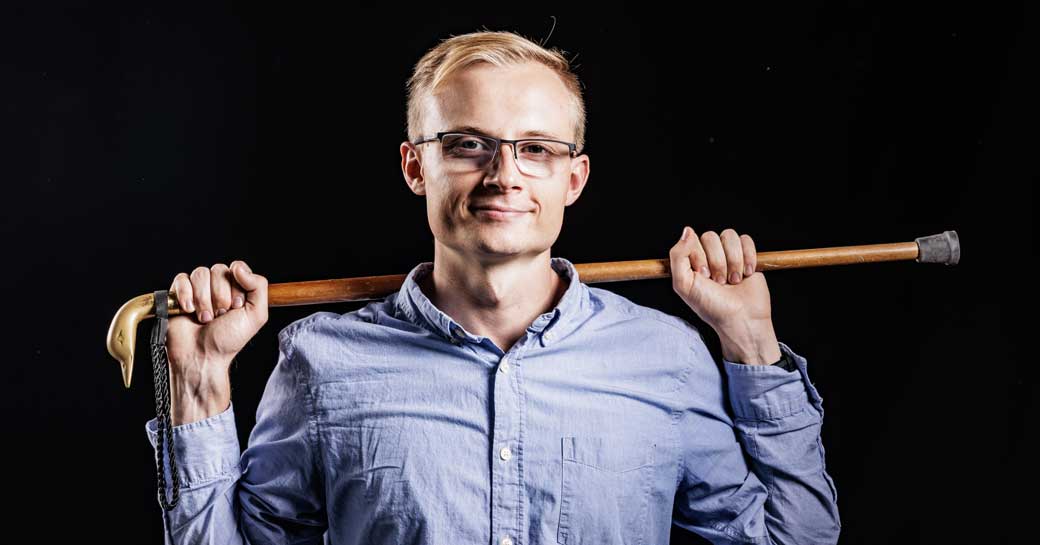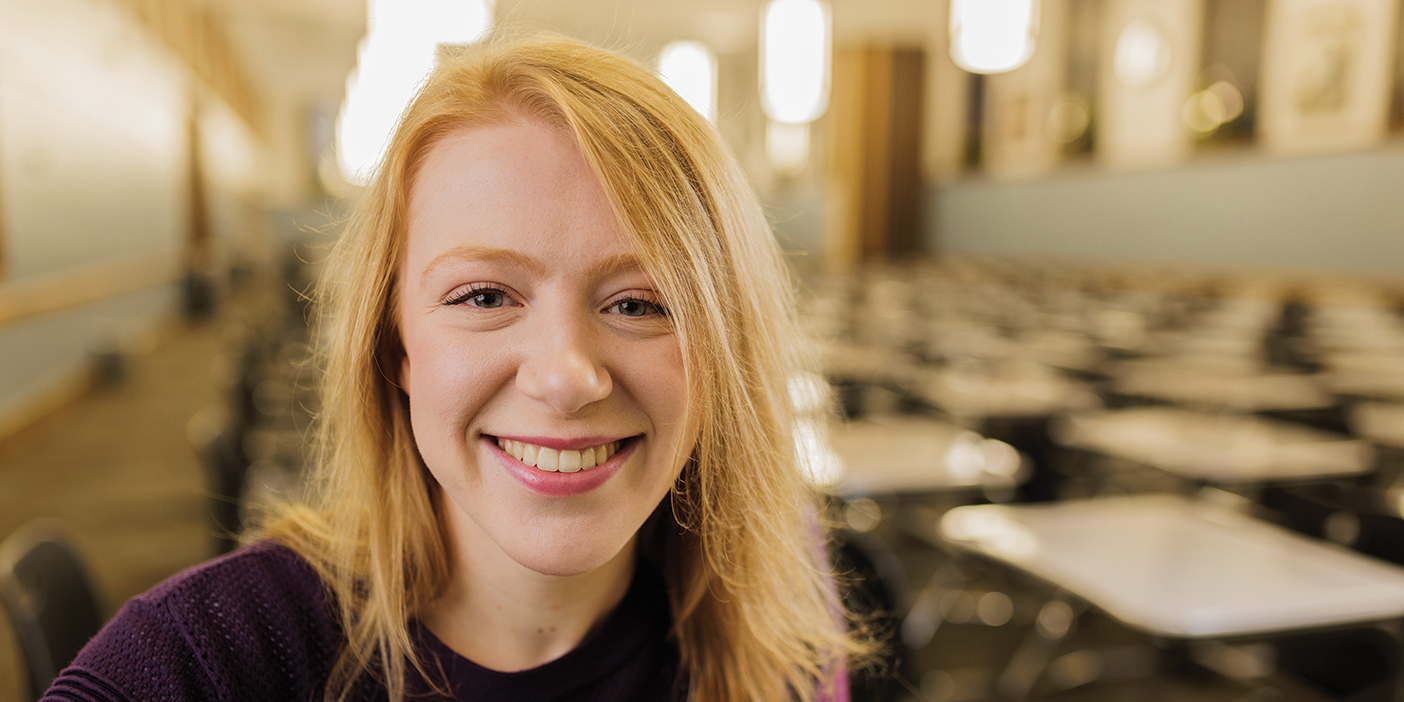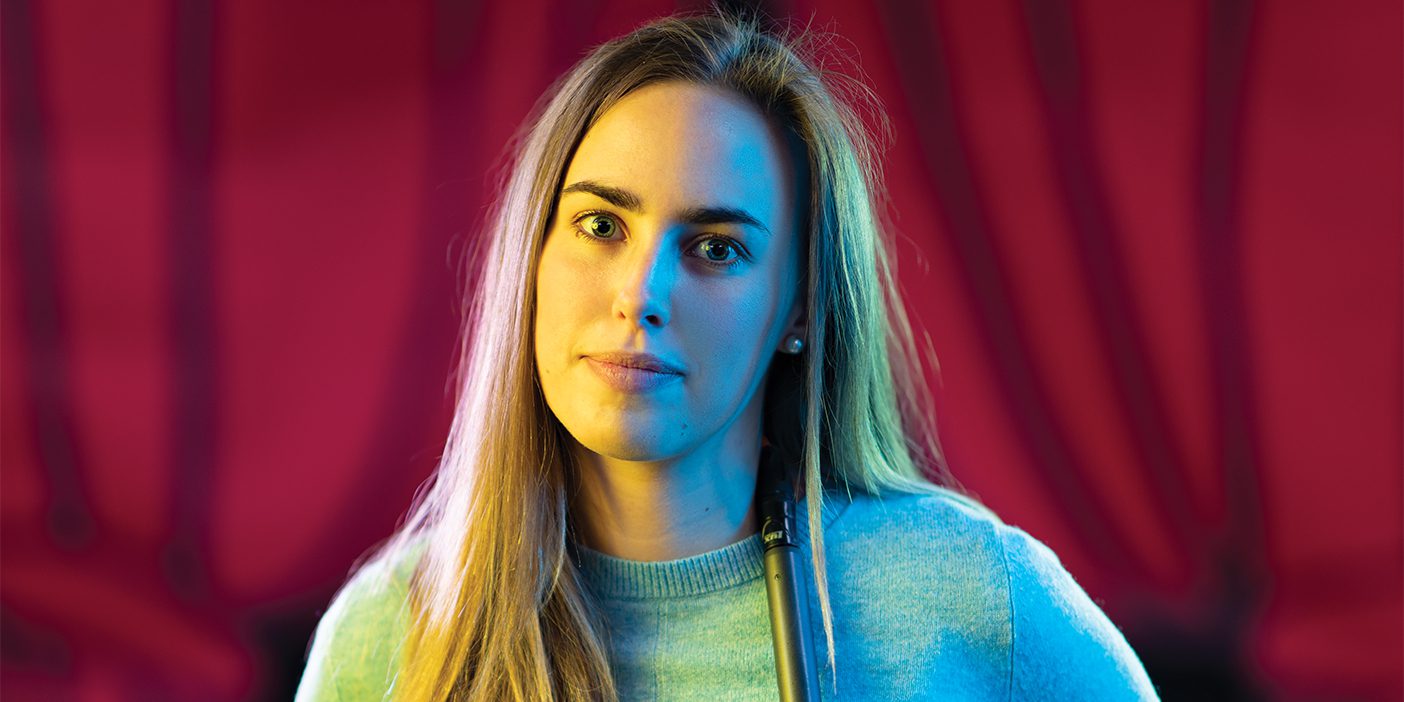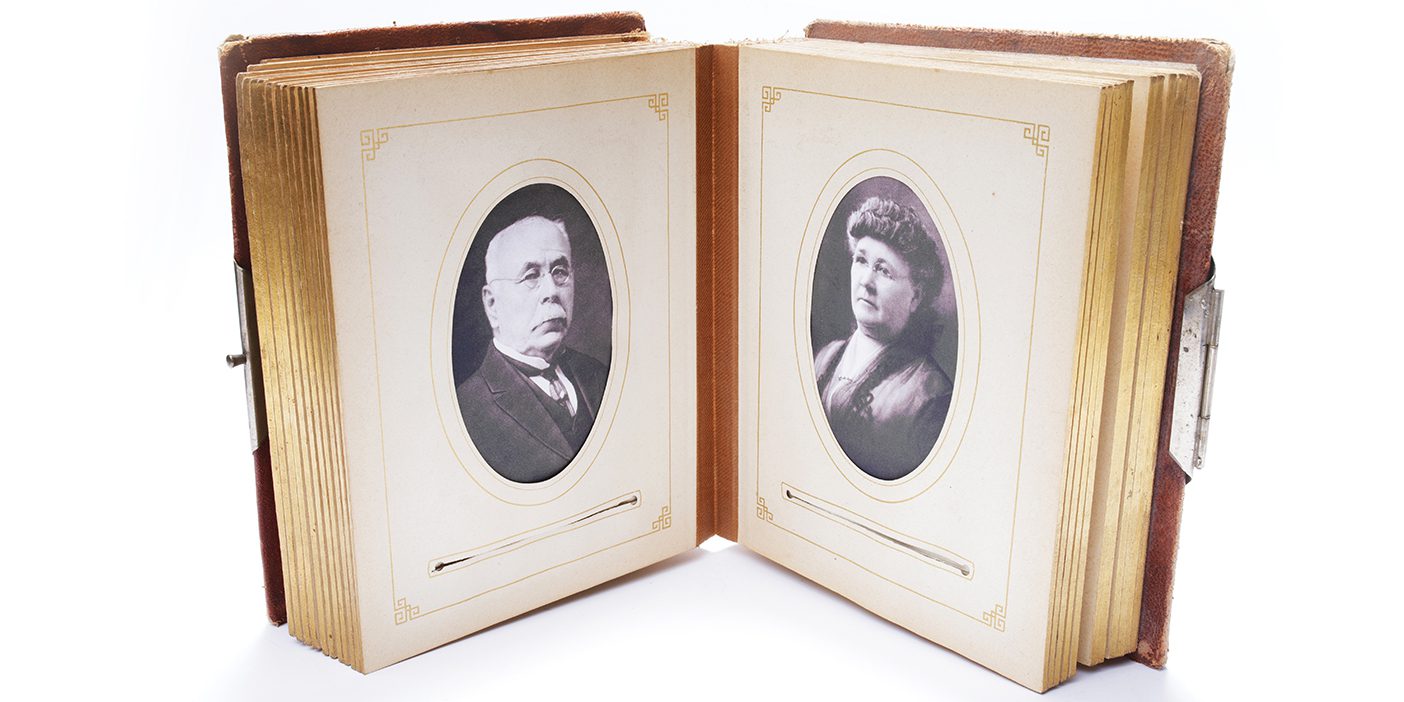Each BYU Homecoming includes an essay contest, sponsored by descendants of George H. Brimhall, to honor a BYU founder. The 2022 contest honors James E. Talmage, Apostle and Brigham Young Academy alumnus and professor. Here is the winning essay, by English graduate student Isaac James Richards (BA ’22).

My eyes froze on the email: “Coffee at 10 a.m. on Friday?”
I was applying to graduate schools, and I wanted to make a good first impression on this professor and potential advisor.
Do I wait to explain in person that I don’t drink coffee? I wondered. Or do I try to do that over email? There will surely be other beverage options available, right?
Looking back, I’m amused at my anxiety. Growing up in Rexburg, Idaho, hadn’t given me much experience with coffee culture.
Despite the professor’s assurances that I could order a different drink, I did end up staring at a menu of nothing but coffee. When I mumbled, “What do you have besides coffee?” to the barista, she paused, then said with a shrug, “I guess I could make you a lemonade?”
James E. Talmage cared about fitting in at graduate school, too. At age 19, he left Provo by train for Lehigh University in Pennsylvania. Upon arrival Talmage realized that the fashion among students was to use a stylish cane or walking stick. He promptly purchased one and noted in his journal: “This may seem a very trivial item, but it illustrates one of my favorite theories, viz, that a traveler should be strictly cosmopolitan, and ever conform to the ways of the particular community wherein he may be.”
I felt that same pressure as I attended my first academic conference in Baltimore, Maryland. While there I used a free afternoon to visit Johns Hopkins University, where Talmage studied during his second year of graduate school. I tried to imagine a bespectacled young Talmage eagerly bent over a chemistry book in the historic George Peabody Institute Library.
That same day I was invited to a reception at Pickle’s Pub—a bar just blocks away from Saratoga Street, where Talmage rented his first room in Baltimore. This time the awkwardness settled even deeper into my stomach. Academia was certainly widening my sphere: first a coffee shop, now a bar! Summoning my courage, I swallowed hard and marched out into the rain. I wanted something stronger than a lemonade—so I ended up with a Sprite.
Talmage continued in his journal: “All the men smoke here; I do not intend to smoke for that reason, because by doing so I sacrifice a principle, but by simply using a cane I sacrifice no principle, but at the same time conform to [the customs of] the people here.”
Talmage’s parable of the cane distinguishes between conformity and uniqueness, reminding us that both have their limits. Being unique isn’t just about breaking rules and conventions. There are some things that shouldn’t be broken—like commandments and covenants. In fact, what makes us unique in all the world is what we have in common: the truths of the restored gospel.
Talmage balanced tradition and innovation when the Church and BYU were undergoing dramatic changes. He wrote a textbook on science when such a topic was seen as worldly and anti-religion by many Church members. He was present in the Tabernacle when Wilford Woodruff delivered the Manifesto, ending plural marriage. He saw Brigham Young Academy mature into a true institution of higher education. Talmage wasn’t afraid of what he would learn. He brought the best of the world and the uniqueness of BYU together.
As an aspiring scholar and professor, I’m inspired by Talmage’s poise on the balance beams of the world.
We all want to fit in, and we all want to be unique. The parable of the cane is about successfully balancing on that tightrope—conforming when it may not matter, but never compromising when it does. Remember the coffee incident? That professor asked me to present research with him in New Orleans. And the Sprite? No one judged me. And remember how I was applying to graduate school? I’ve been invited to attend a top PhD program. When the acceptance package arrived on my doorstep, inside I found a mug and two large bags of coffee.












